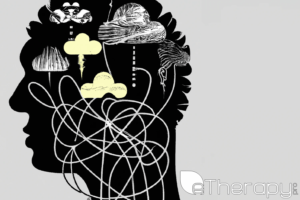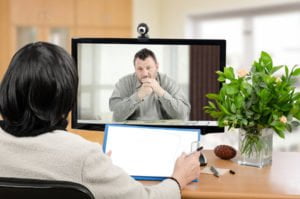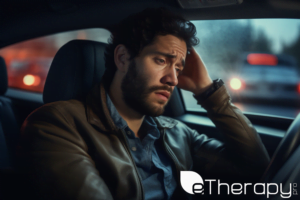Although multiple studies have found the outcomes of online vs. face-to-face therapy to be extremely similar, there are certainly some differences. The main “con” for online counseling is the human factor. For some people, especially of generations that didn’t necessarily grow up communicating via FaceTime and other digital methods, the concept of e-therapy may seem strange. It may be difficult to imagine opening up and trusting an individual who has never been met face-to-face. Even though scientists have been studying various forms of telemedicine for over a decade—including demonstrating it to be effective—for some people, not having conversations face-to-face may be a dealbreaker.
However, it’s impossible to know if e-therapy won’t work unless it’s tried; many skeptical people have been pleasantly surprised, especially because the quality of online communication has grown so much. It’s also important to look beyond possible doubts at the sheer list of “pros” that come with accessing therapy online. The most important argument for online counseling is simple accessibility.
Many Americans live in areas that are underserved by mental health professionals; the current mental health and addiction crisis that our country is experiencing is a powerful reminder that many people simply don’t have easy access to therapy and support that could be life-changing or even life-saving. Finding a local counselor who specializes in whatever area the client needs is difficult on its own, let alone finding a therapist with immediate availability who is also within a reasonable geographic distance. For the 60 million Americans who live in rural areas, this problem is compounded by the fact that there is a shortage of basic primary care medicine in these areas, let alone mental health care. For these communities, simply being able to access care from home instead of having to travel dozens of miles may mean the difference between therapy being viable or not.
When considering the pros and cons of online therapy, it’s also important to recognize how crucial therapy can be (in any form), and that it’s impossible to quantify the precise increase in quality of life. Simply put, the reduction in barriers to access provided by online counseling make the adjustment to delivery method worth it for anyone who is struggling. For example, an exhausted mother with an infant who is seeking help for depression may find herself having to choose between extra sleep or a time-consuming drive to the therapist’s office that also requires lining up childcare. In this situation, the barriers to traditional care could seem overwhelming. When e-therapy is considered as an alternative, the mother may finally be able to get the help she needs, helping raise her personal quality of life as well as her skill and attentiveness as a parent.
When therapy is used as a method of accountability for making big life changes—such as getting sober—the “pros” of getting any kind of help at all again outweigh whatever personal adjustments are required by the change in delivery between e-therapy and office-based care. For example, the opiate addiction problem has significant overlap with rural and underserved communities. Studies have found time and time again that getting professional support makes a big difference in whether someone manages to stay sober or not over the long term. Many people in rural or underserved areas who are in recovery may only have a local AA meeting as a source of support—and that method doesn’t work for everyone. Part of this is because addiction is often a means of self-medicating a diagnosis like depression or anxiety. These conditions need to be dealt with on their own with a qualified therapist to stop the symptoms that a recovering addict was attempting to control with drugs or alcohol. So when deciding whether online therapy is worth it, these factors are incredibly important for anyone struggling with substance abuse.
Many more situations go beyond the basic arguments of whether or not online counseling is a worthwhile alternative to old-fashioned therapy in an office. The concept may seem strange, and some traditionalists may ultimately be uncomfortable with it, but for the vast majority of people, removing the commonly occurring barriers to treatment for mental health conditions is ultimately reason enough to give it a try.










